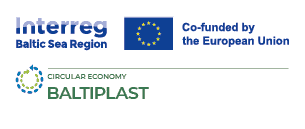
Plastic-Free Future: Local Solutions for the Baltic Sea
23 October 2025
EURegionsWeek 2025 highlights our local pathways toward a circular, plastic-free Baltic Sea
How can local action drive regional transformation? Our project addressed this question during its session “Plastic-Free Future: Local Solutions for the Baltic Sea” at the European Week of Regions and Cities (EURegionsWeek) on 23 October 2025.
The event showcased how cities, schools, and businesses across the Baltic Sea Region are reducing single-use plastics (SUPs) and plastic packaging through practical, tested measures.
From strategy to implementation
Our partners presented concrete outcomes from their cross-border collaboration, including:
- Demonstration of the BALTIPLAST Plastic Waste Management Platform, now accessible at dl4sd.org, offering training, an educational kit, and a hub of best practices;
- A comprehensive package of solutions for municipalities to reduce plastic waste and improve management;
- Guidance materials for businesses and consumers, fostering behavioral change and sustainable choices;
- Demonstrated pilot results showing how strategic planning and improved procurement can cut both plastic waste and emissions.
Local leadership shaping regional impact
A highlight came from the City of Västerås (Sweden), who presented the city’s action plan for sustainable plastic use. Through systematic inventories, targeted reduction goals, and the adoption of reusable systems at public events, Västerås achieved tangible progress — including a 42% reduction in plastic waste at one major event and significant CO₂ savings.
Scaling up local success
Speakers emphasized that local action is central to addressing the 70% of Baltic marine litter that originates from single-use plastics. The project’s tools and platforms now empower municipalities to replicate successful approaches region-wide.
“Local authorities are not just implementers — they are innovators,” said Andrea Dobri, BALTIPLAST Communication Manager. “BALTIPLAST connects their practical knowledge with scientific insights to make plastic reduction both achievable and measurable.”
As the session concluded, participants agreed that building a plastic-free Baltic Sea requires coordinated local action, continuous learning, and strong collaboration across borders — exactly what BALTIPLAST is helping to achieve.





